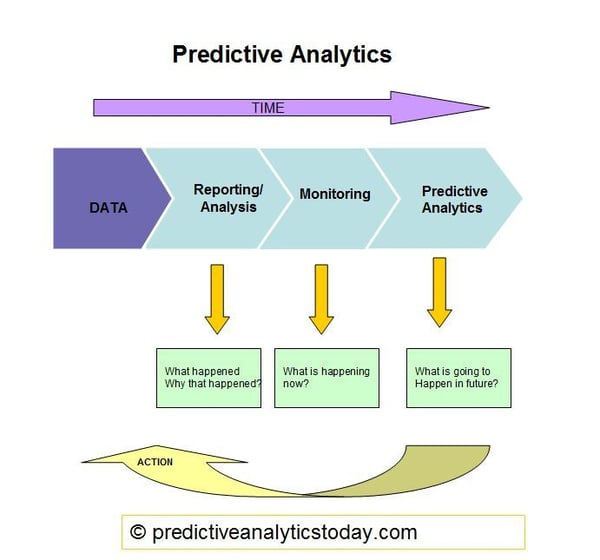
Artificial Intelligence in machines or devices allows them to simulate human intelligence and work and react like humans. AI can mimic these human cognitive functions: learning, problem solving, speech recognition, and planning.
Businesses have long harnessed the great potential of AI. In sales, it is a must that CRMs have artificial intelligence and machine learning. With it, CRMs can automate sales tasks; analyze and interpret data; create ease in communications and collaborations; assist in forecasting and strategy; and help provide personalized services to customers.
Artificial intelligence also assists in one important area: content marketing.
Content marketing is an important sales and marketing tool. It helps build awareness for your brand and highlights your expertise; it can generate leads and nurture those leads for conversion.
But for your content marketing to produce these values, you have to be smart and strategic about it. That’s where AI plays a huge role. Just how does AI help with your content marketing? Here are the ways:
1. It creates a personalized customer experience.
AI is able to gather valuable insights from data collected to optimize your content marketing. These data may include demographics and psychographics to contextual data like purchase history, browsing history, buying patterns and behavior, points of engagement, touch points and channels used, etc. This AI capability helps you personalize—even hyper-personalize—the content you create for your customers. You will actually know what kind of content to create for which segment of your market.
Latest AI technologies make personalization easier for content marketers. It not only generates valuable insights for personalized content; you can also use AI to personalize other aspects of your marketing efforts (like with the use of chatbots, below).
And personalization makes a huge difference in your marketing, as these stats suggest:
-
- 91% of consumers are more likely to shop with brands who provide relevant offers and recommendations.
- 80% of customers are more likely to purchase a product or service from a brand who provides personalized experiences.
- 72% of consumers in 2019 only engage with marketing messages that are customized to their specific interests.
- 70% of millennials are frustrated with brands sending them irrelevant marketing emails and prefer personalized emails over batch and blast communications.
The more personalized your content, the better your chances of nurturing and converting leads into customers. And yet, across industries, marketers are sending just 30% more individualized campaigns than batch and blast emails. This is unfortunate especially given the fact that AI is accessible; there is no reason for a company not to invest in it. Your CRM, for one, must have AI and machine learning capabilities to collect these data and generate the actionable insights marketers need.
2. It generates predictive analytics.
Artificial intelligence and machine learning systems collect data for predictive analytics. Predictive analytics uses current and historical data to predict future activities, events, behavior, and trends. It uses many techniques from data mining, statistics, modeling, machine learning, and artificial intelligence to analyze data and make predictions about the future.

(source)
What does this mean for your marketing? Predictive analytics can be applied in marketing campaigns, sales, and customer service. The foresight gives you a key advantage. You can predict a customer’s journey through your funnel and strategize accordingly, including creating content based on what the predictive analytics suggests.
3. It helps create a strategic content calendar.
For a lot of content marketers and producers, it is a challenge to create a content calendar. You want to be certain that what you write about is relevant to your target audience.
AI takes out the guesswork. It already provides you with the data that informs you what readers are reading (based on algorithms), which emails have higher click-through rates, which e-books or white papers are downloaded the most, even which topics are trending. You can create a strategic content calendar based on these data.
And of course, the more strategic your content, the better your customer engagement and conversion.

4. It can automate your content.
You can automate the release and/or distribution of your content with AI. You can schedule your posts, both for your blog and all your social media accounts, and track the results. Doing this simple automation action—plus the automated content curation/planning as mentioned above—eliminates a lot of redundant tasks for content marketers.
There’s another way AI automates content: by generating it. You may not have realized it, but you’ve probably read stories generated by AI. In fact, the Associated Press, Fox, and Yahoo have used bots to “write” some of their stories. Why shouldn’t you, too?
5. It will liven up your content.
There’s another way bots are used in content: in chats. These days, chatbots are the go-to for most companies for their online customer service. A chatbot—or talk bot, chatterbot, or chatterbox—is an Artificial Intelligence program that simulates interactive human conversation by using key pre-calculated user phrases and auditory or text-based signals.
Chatbots mimic humans, so it feels like a customer is chatting with a real person in real time when they need any sort of help online. While they may not always have the answers, chatbots can direct you to online content that may help you with your query or concern.
While it still will never feel (or talk) like a real person, a chatbot is still a lot better for customers. It also makes your website (the content of which is still part of content marketing, remember) a lot more interactive. Just make sure to choose the right bot for your brand and kind of business.
While artificial intelligence will never replace the kind of content real people are capable of writing and producing, in an industry like sales, it’s an important ally. AI's efficiency is simply in sync with sales’ fast pace. With AI and machine learning, you can collect and analyze data, plan and personalize content, optimize its distribution, and measure results—with speed and without manual error.
Photos by rawpixel.com from Pexels





